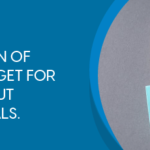November 29, 2024
Fall is the season for leaves, pumpkins, and corn mazes. In fact, Vermont is home to New England’s largest corn maze, known as the “Great Vermont Corn Maze,” which spans 24 acres. But just as mazes can be complicated and winding, so can the mortgage process. With the right guidance, you can be prepared before meeting with a lender by knowing what you can and should ask them, and what documents you should have on hand. In this post, we will help you with that find the way We navigate the complex maze of mortgage options to ensure you choose the best path to homeownership.
How to prepare before meeting with a mortgage lender
Perhaps you’re looking for a new home and think it’s time to talk to a mortgage lender to find out how much you can afford. Before you begin the mortgage application process, it’s important to prepare for your meeting with a lender.
The key is to assess your financial situation. To make your assessment, ask yourself the following questions:
Do you have stable and predictable income?
The underwriter determines the income used to qualify for a mortgage based on stable and predictable income. If you’ve had the same type of income for less than two years, it may be harder to qualify for a mortgage if your income fluctuates or is unpredictable.
What is my credit score?
Your credit score represents your creditworthiness. Credit scores are dynamic and can change over time, but it’s important to monitor them regularly and take steps to improve your financial health when necessary.
Should I save money for a down payment?
Your down payment contributes to your home equity, so the more you save, the less you’ll need to borrow and the lower your monthly payments will be.
Will recurring debt affect approval?
Recurring debts are debts that occur monthly and typically appear on your credit report. Examples include credit cards, student loans, and car loans. Reducing recurring debt before applying for a mortgage is a great way to ensure that the amount you owe is in line with your income. Lenders use your debt-to-income ratio to determine your ability to repay your debts. The lower your debt-to-income ratio, the more likely you are to qualify for a loan.
Once you have assessed your financial situation, avoid making any major purchases before you begin the home buying process. It can affect your credit score and debt-to-income ratio and slow down the approval process.
Which home loan is best for you?
Once you have completed your financial health assessment, you are ready to do the following: find a mortgage lender In Vermont and New Hampshire, we can help you choose the right type of mortgage for your situation.
Types of mortgage loans
Traditional fixed rate mortgage:
a conventional With a fixed-rate mortgage, the set interest rate and monthly payments remain the same over the life of the loan.
Adjustable Rate Mortgage (ARM):
ARMs start with a low interest rate but adjust over time, usually annually after an initial fixed rate period.
Some government-backed loans are processed through financial institutions such as Union Bank, but are guaranteed through the government at the state or federal level.
- Federal Housing Administration (FHA) Loans Any purchaser who meets the eligibility requirements may participate. With an FHA loan, you can keep your down payment low, use gifts for your down payment and closing costs, and get seller assistance.
- Veterans Assistance (VA) Loans Open to eligible military members, veterans, and surviving spouses. VA loans do not require a down payment.
- Vermont Housing Finance Agency (VHFA) is a nonprofit organization that helps low- and moderate-income residents of Vermont obtain affordable home loans through participating financial institutions, including Union Bank. We offer many different types of programs, including the Vermont First-Time Buyer Program.
- New Hampshire Housing Finance Agency (NHHFA) offers a variety of programs, including the New Hampshire First-Time Buyer Program, which is designed to help first-time homebuyers purchase a home in New Hampshire through down payment assistance, low interest rates, and qualifying income limits.
top lender VHFA and NHHFA, Like Union Bank, we use our industry experience to help you explore all types of mortgage programs that make homeownership affordable.
When to find a mortgage lender
Now that you have a new understanding of pre-qualification and pre-approval, it’s time to start looking for a mortgage lender, as there may be a difference between the price you have in mind and the amount your mortgage lender will pre-qualify you for. It’s always best to spend as little as possible if possible. This will give you a cushion in your budget for the unexpected. It also protects you from spending too much on your home, leaving you with less time for fun things like traveling, eating out, and decorating your new home.
When you’re looking to buy a home in Vermont or New Hampshire, it’s best to start looking at a mortgage lender like Union Bank before you talk to a real estate agent. This is because you will likely be asked if your real estate agent is pre-qualified or pre-approved. When you’re ready to make an offer, most sellers will want to know if you’re a qualified buyer before they accept your offer.
You can start the process with Apply online Or set up an appointment with one of our knowledgeable representatives mortgage lender.
Documents to prepare for mortgage lender
You can speed up and streamline the mortgage application process by preparing the necessary documents requested by your mortgage lender.
Use this handy checklist to prepare:
- Income certificate: The most recent 2 years of W2s, the most recent 30 days of pay stubs, child and spousal support, disability or veteran benefits, pensions, Social Security, and if self-employed, the most recent 2 years of personal and business tax returns.
- identification: Driver’s license, passport, or other government-issued identification.
- Bank statement: The most recent 60 days of bank statements for your checking and savings accounts.
- Proof of assets: Statements for the most recent two months of assets such as investment accounts, retirement accounts, and vehicles.
- down payment: Gather evidence of the funds you plan to use for your down payment, such as bank statements, investment account statements, and investment account statements. gift letter Confirmation of gifted down payment funds.
What to expect when meeting with a mortgage lender
We are almost through the mortgage maze. You have a down payment saved, a steady, predictable income, and a good understanding of your debt relative to your income. You can now finish this journey by explaining what to expect when you meet with your mortgage lender.
There are many different types of mortgage lenders. Mortgage loan team Local banks in Vermont and New Hampshire, like Union Bank, offer personalized, individualized service.
The role of a mortgage lender is to guide you through the mortgage process to obtain home ownership. To do this, they will take all the documents you have prepared, examine your financial situation, evaluate your debt-to-income ratio, determine the required down payment and choose the type of payment that is suitable for you. Find a mortgage.
Be prepared for your lender to ask you detailed questions about the home you are buying, such as:
Where are you considering buying a home? Your lender must be licensed to do business in the state where you plan to purchase.
How far in advance do you plan to purchase? You may need more time to increase your savings or improve your credit score, so a timeline can help your lender plan.
What is the price range? Keeping your price range in mind will help your lender set your ideal budget based on your financial information.
You should also be prepared to ask questions of your lender, such as:
What type of mortgage is best for me? Your lender should help you understand which mortgage programs are right for you and the pros and cons of each so you can make an informed decision.
What will my monthly payments be? Based on tax and insurance estimates, lenders will know upfront the approximate maximum payment amount. However, you don’t have to reach the maximum monthly payment amount.
What does the rest of the process look like? An experienced mortgage lender will guide you through the process, so you’ll feel less anxious if you know what to expect.
Choosing the lender you work with can be the difference between getting lost in the mortgage maze and finding your way out of it. Our experienced local lenders can help you secure an affordable mortgage and turn you in quickly, making your home buying experience seamless and rewarding.
Union Bank is ready to guide you vermont state or new hampshire And you’re ready to take the next step. contact address our team today.










